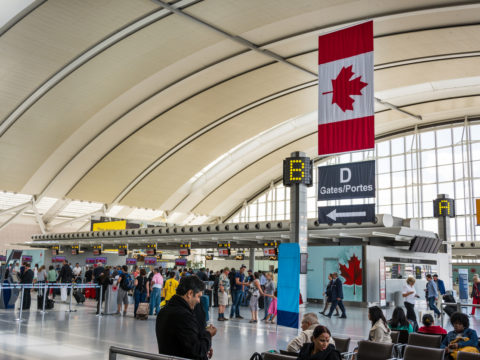
Sarah is an orderly at a long-term care facility in Montréal. She has recently recovered from COVID-19 that she likely contracted from her job. Sarah spent eight days in bed with fever and aches in the small Montréal-Nord apartment she shares with her young asthmatic daughter.
Long before the COVID-19 pandemic, Sarah, a Haitian citizen, crossed the border from the USA to Canada seeking asylum. Her first refugee application was denied and so was her appeal.
Sarah’s story is not unique. The Montréal-Nord neighbourhood that Sarah lives is full of stories like hers — immigrants working on the frontline of the pandemic with precarious immigration status. It should come as no surprise that the Montréal-Nord neighbourhood where Sarah lives is also the borough of the city with the highest rate of COVID-19 infections.
Sarah risked her own safety, the safety of her asthmatic daughter, and the safety of her community to do a job that is already difficult to fill during the best of times — let alone during a global pandemic — and yet she still faces the possibility of deportation.
The gratitude that Canadians feel towards essential workers on the frontline of the COVID-19 pandemic is undeniable. Quebec Premier François Legault refers to them as “guardian angels” in his press briefings. Prime Minister Justin Trudeau has expressed similar sentiments.
These “guardian angels” work tirelessly to take care of us and it’s time we returned the favour. We need urgent action from provincial and federal governments to grant permanent status to essential workers who are putting their lives at risk for the benefit of the rest of us. In addition to the fear these workers face for their own safety and that of their community, they also have the specter of deportation looming over the lives they have built in Canada.
Sarah and her daughter’s only remaining option to stay in Canada is to be granted residency on humanitarian and compassionate grounds. Humanitarian and Compassionate grounds applications weigh the humanity and compassion of the Canadian public to grant status to an applicant against the fact that they are technically ineligible. But what about a system that rewards the humanity and compassion shown to the Canadian public by an applicant? Is there no reward for that?




